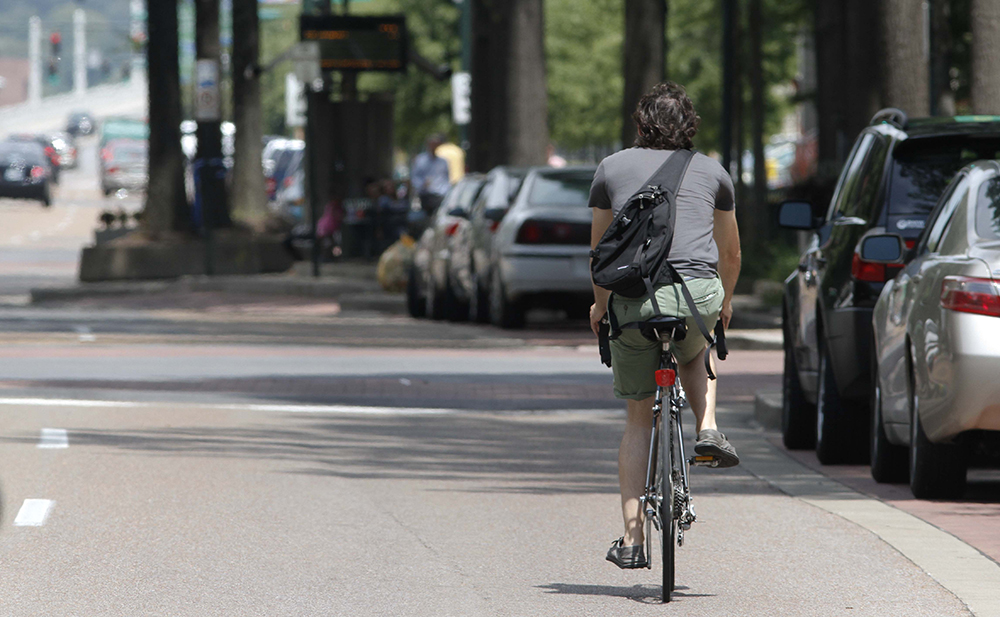Bikes: Streets or lanes?
The use of bicycles is good exercise, saves gasoline and helps people get from here to there faster than walking.
Chattanooga recently was awarded grant funds of more than $1.4 million to build separated bike lanes connecting inner-city residential areas to the University of Tennessee at Chattanooga and downtown.
The lanes have been described as protected and partitioned, meaning the cyclists -- along Eighth Street, Duncan Avenue, Orchard Knob Avenue, South Willow Street, Second Street and Frazier Avenue -- will be separated in a more pronounced way from normal traffic than current bike lanes offer.
Studies cited by the city say such lanes encourage more bike traffic, but an increasing way of riding -- and what is being taught in some bicycling classes -- is what's called vehicular cycling or taking the street. Instead of taking designated bike lanes or remaining to the far right of the street, cyclists pedal down the street in front of and behind motorists. Sometimes they follow designated street signs and signals -- as the class instructs -- and sometimes they go right on through them if traffic is not coming the other way.
"It's very, very counterintuitive," Ruthie Thompson, events and marketing coordinator for Outdoor Chattanooga, said in a 2010 Times Free Press story. Instead of staying to the extreme right of a lane, where they could encounter hazards such as storm drains and brush piles, riders should move out in a lane to take possession of it. When they're in that possession, she said, they should stay in the middle or right third of the lane where they're more visible to traffic.
However, according to Tennessee law, this can only be done by cyclists going the normal speed of traffic. If they are unable to go the normal speed of traffic, they should "ride as close as practicable to the right-hand curb or edge of the roadway."
Chattanooga is deemed by so many to be a wonderful bike town, but motorists who travel the Scenic City's streets -- and find a rider in the lane in front of them but not going the speed of traffic -- understand the frustration.
Perhaps a bike summit to iron out some of these disparities is necessary.
'Come together' - sort of
By a margin of fewer than 40 votes out of nearly 78,000, U.S. Rep. Scott DesJarlais will vie for a third term in Congress in November.
His primary opponent, state Sen. Jim Tracy, conceded Monday out of loyalty to the "Republican Party and the conservative cause in Tennessee."
Tracy didn't specifically endorse DesJarlais in his November race with Democrat Lenda Sherrell but suggested "we can now come together as Republicans and start focusing in the general election in November."
An endorsement would have been the right thing to do, but what's most important is that Tracy voters not stay at home in the fall. Although the district was adjusted in 2010 to favor Republicans, it was held by Democrat Lincoln Davis from 2003 to 2011. And Sherrell is running a relatively conservative campaign.
DesJarlais has been rated as the fourth most conservative member of the House, and if voters want that same voting record -- which Tracy also would have given them -- they need to vote for the incumbent.

